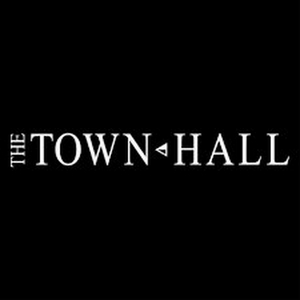The Town Hall Creates Entertainment Award Named After Cultural Icon Lena Horne

The Town Hall today announced the inaugural Lena Horne Prize for Artists Creating Social Impact, the first major entertainment award to be named after a woman of color, honoring excellence at the intersection of arts and activism. The award, named after the celebrated actress, singer and activist Lena Horne, will recognize today's leading artists that are using their platform to promote awareness and create social change, and will be presented to the soon-to-be-announced recipient at an event at The Town Hall, a national historic landmark, in February 2020. The recipient of the Lena Horne Prize was selected by an advisory board that includes Lena Horne's daughter Gail Lumet Buckley, as well as an esteemed list of entertainers and philanthropists including Harry Belafonte, Billy Porter, Judy Collins, Deesha Dyer, Roxane Gay, Bob Santelli, Bruce Cohen, Jose Antonio Vargas, and more. The recipient will receive a $100,000 donation to be directed to a charity of their choice.
Lena Horne is known for her repertoire of hit songs, including Stormy Weather, and for performing on many albums including Porgy and Bess, and released her own Grammy Award-winning An Evening with Lena Horne. In 1981, she won a TONY Award for her one woman play, Lena Horne: The Lady and Her Music. Horne's place as the prize's namesake is more than fitting as she spent her trailblazing career fighting for equality and justice. In an industry that perpetuated racial stereotypes, she only accepted roles that empowered African American women. When Hollywood producers suggested Lena pass as Latina or white, she outright refused, notably saying: "I don't have to be an imitation of a white woman that Hollywood sort of hoped I'd become." Horne's legacy extended into political activism, working with Eleanor Roosevelt to pass anti-lynching laws and later speaking at the March on Washington. Horne was awarded an honorary doctorate from Howard University, the Spingarn Medal by NAACP, Kennedy Center Honors, and a Grammy Lifetime Achievement Award.
"My mother used her platform as an entertainer and activist to empower and stand up for women and people of color," said Lumet Buckley. "It was a family tradition. Lena Horne's grandmother, Cora Calhoun Horne, was a suffragist, an activist and a director of the Big Brothers and Big Sisters Federation. For my mother it was never just about being a household name, it was about advocating for equality and justice and I am so proud that her legacy will continue through the Lena Horne Prize."
The Lena Horne Prize will continue to carry the history of The Town Hall and recognize contemporary artists for their incredible achievements on and off stage by recognizing a new artist each year. Since its founding by a group of suffragists nearly a century ago, The Town Hall has been at the nexus of social justice movements and artistic excellence, making it a National Historic Landmark for cultural and artistic history.
"We're honored to pay tribute to Lena Horne, a true American hero, and to embrace her as a symbol of all that The Town Hall has aspired to since its inception," said M.A. Papper, The Town Hall's Artistic Director. "Building on her example, we hope this award will amplify and support the awardee's mission and their dedication to justice, inspire other artists to use their platform similarly, and promote respect and vigilance in the arts. We thank Lena Horne's incredible family for this opportunity to celebrate her life and her dedication to humanity, and the hope of inspiring others."
The Lena Horne Prize was created by Michael Matuza, Jeb Gutelius and The Town Hall, and will be presented at a special event at the venue in February 2020. Produced by The Town Hall, Matuza (NAACP, Peabody and Emmy-nominated MBM Entertainment) and Gutelius (Sailworks), the event will feature music, art, short films and spoken word from renowned artists, entertainers and activists. Leading up to the event, The Lena Horne Prize will partner with the Grammy Foundation & Museum to create workshops to promote music education and activism.
The Town Hall was built by a group of suffragists in 1921. It was created as a space for people of all genders, races and persuasions to gather and perform and discuss the issues of the day. The Town Hall is where Marian Anderson, Billie Holiday, Nina Simone, Bob Dylan, Judy Collins, Joao Gilberto, Isaac Stern, and Leonard Cohen performed their first concerts. It's where Bird and Dizzy introduced bebop to the world in 1945; Coretta Scott King debuted her Freedom Concerts in 1964; in 1921, Margaret Sanger was famously arrested on stage for speaking about birth control, an incident that launched a movement and catapulted her organization into the national spotlight, an organization she later renamed Planned Parenthood. The Town Hall has been at the forefront of social progress and political movements, presenting events led by Paul Robeson, Miriam Makeba, Harry Belafonte, Diego Rivera, Anais Nin, James Baldwin, Amiri Baraka, Ossie Davis, Ruby Dee, Lorraine Hansbery and Arthur Miller. Over the last 100 years, The Town Hall has been home to countless cultural and musical milestones and continues to be a forum for the people-a welcome home of expression, education and exploration.
Comments

Videos

